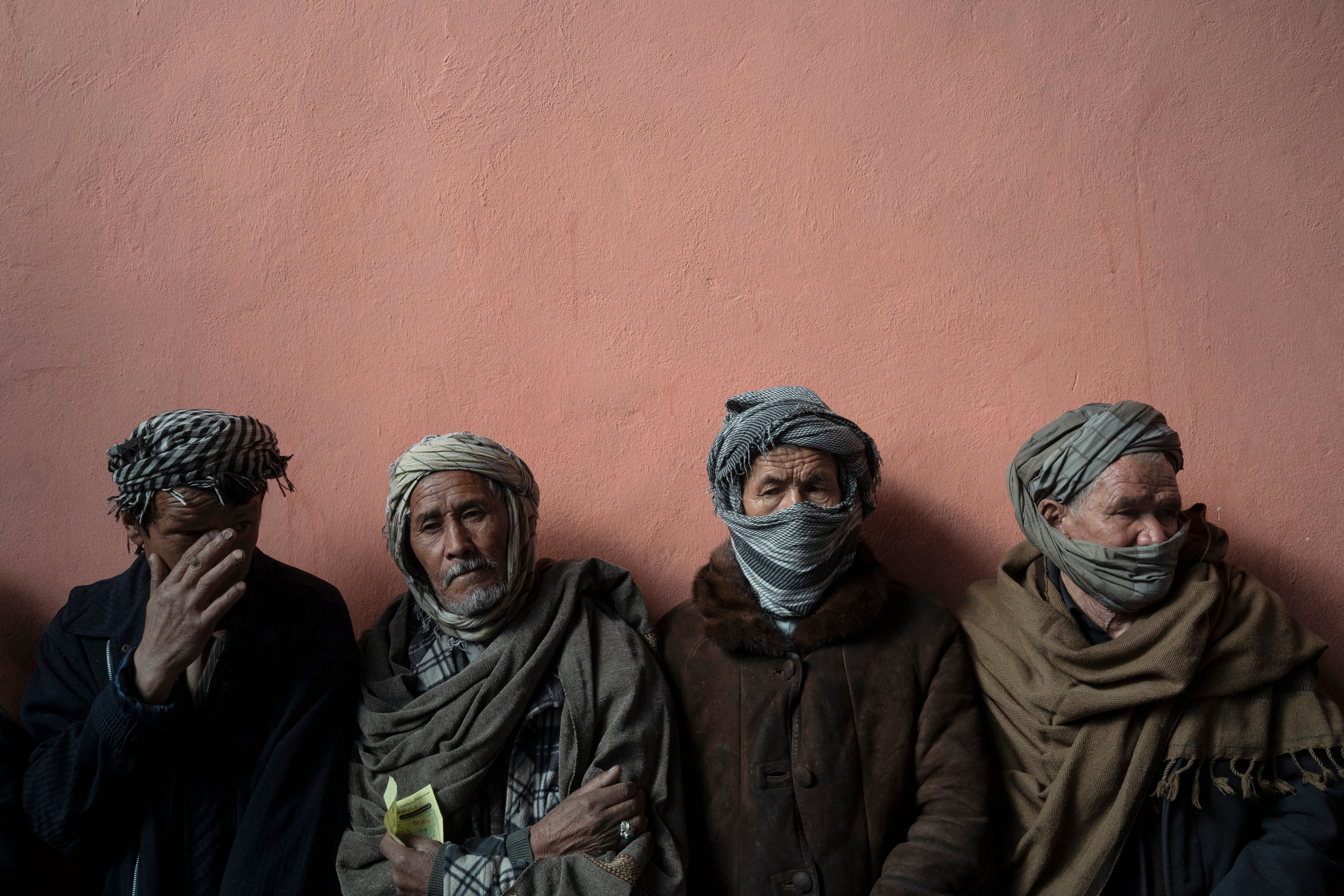Afghan Central Bank doubles cap on weekly withdrawals
Afghanistan’s Central Bank has doubled the cap on weekly bank withdrawals to the equivalent of $400

Your support helps us to tell the story
From reproductive rights to climate change to Big Tech, The Independent is on the ground when the story is developing. Whether it's investigating the financials of Elon Musk's pro-Trump PAC or producing our latest documentary, 'The A Word', which shines a light on the American women fighting for reproductive rights, we know how important it is to parse out the facts from the messaging.
At such a critical moment in US history, we need reporters on the ground. Your donation allows us to keep sending journalists to speak to both sides of the story.
The Independent is trusted by Americans across the entire political spectrum. And unlike many other quality news outlets, we choose not to lock Americans out of our reporting and analysis with paywalls. We believe quality journalism should be available to everyone, paid for by those who can afford it.
Your support makes all the difference.Afghanistan's Central Bank doubled the cap on weekly withdrawals Wednesday, a day after the Taliban government banned all foreign currency transactions.
The back-to-back decisions come at a time of a continued deterioration of the Afghan economy. The Taliban portrayed the foreign currency ban as a way of trying to stabilize economy, and warned that violators would be prosecuted.
Others suggested the ban could be counterproductive. Much of Afghanistan's economy revolves around foreign trade, foreign aid and remittances from abroad. The local currency, the afghani, has depreciated since the Taliban takeover of Afghanistan in August.
After the Taliban takeover, the U.S. froze nearly $9.5 billion in assets belonging to the Central Bank and stopped shipments of cash. It was part of a pressure campaign aimed at getting Afghanistan's new rulers to respect the rights of women and minorities.
In response, bank withdrawals were capped at the equivalent of $200 a week. Huge crowds formed outside banks every day as Afghans tried to get money for daily needs.
On Wednesday, the Central Bank announced the cap would increase to the equivalent of $400 a week, or $1,200 a month. The bank said those who deposit money starting Wednesday will be able to withdraw funds without restrictions.
The economic situation remains dire. The Taliban’s seizure of power resulted in an abrupt halt to most donor funds. These disbursements accounted for 45 percent of GDP and financed 75 percent of state expenditures, including public sector salaries. In 2019, total government expenditures were nearly $11 billion. Humanitarian agencies say they've seen a sharp increase in hunger, with a drought and the onset of winter worsening the situation.
In addition to the economic woes, the Taliban have also been faced with a sharp rise in attacks by its main rival, the extremist group Islamic State Hardest-hit has been the IS stronghold of Jalalabad the capital of the eastern province of Nangarhar.
On Wednesday, a roadside bomb struck a Taliban patrol in Jalalabad, killing two people and wounding three, witnesses said.
There was no immediate claim of responsibility, but the attack bore the hallmarks of previous IS strikes against the Taliban.
A Taliban district commander in the city confirmed the blast and said four Taliban fighters were wounded. The commander, who identified himself as Mubariz—and like many Afghans goes by one name—did not provide details about those killed in the attack, saying the investigation continues.
In recent weeks, Taliban officials have been reluctant or slow to release details about Taliban fatalities, in an apparent attempt to play down the extent of the damage being inflicted by IS.
The Jalalabad attack came a day after IS attackers set off an explosion at the gate of a 400-bed military hospital in the capital of Kabul killing three women, a child and three Taliban guards said. Five assailants were also killed in the attack.
Taliban officials said guards prevented the attackers from entering the hospital.
IS claimed that one of those killed in the hospital attack was a senior Taliban commander who had played a leading role in the group's Aug. 15 takeover of Kabul. Taliban officials said they could not immediately confirm the commander had been killed.